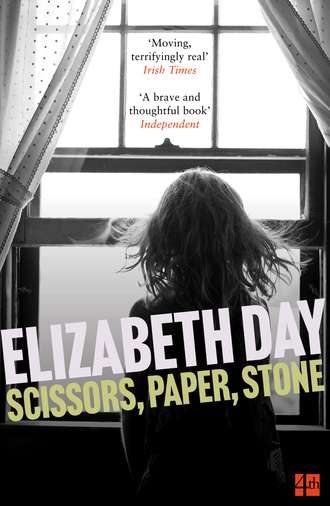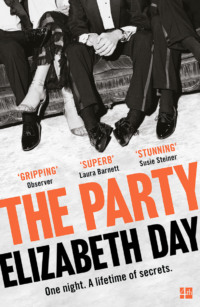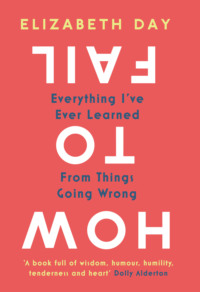
Полная версия
Scissors, Paper, Stone
‘I don’t think soulmates really exist, do they?’ Charlotte continued. ‘Marriage is a transaction of mutual imperfection.’
‘Oh Charlotte, where on earth did you read that?’
‘Nowhere. I just made it up.’
Anne sighed and raised her eyebrows, the way she always did when she disagreed with something but could not be bothered to say why.
‘So there’s no such thing as true love, then?’
Charlotte pushed her knife and fork together on the plate before answering. She sensed a hidden danger beneath the surface of the conversation but was not quite sure why. ‘I don’t think so,’ she said, cautiously. ‘I think it’s mostly a question of finding a man that you like, who will be good to you, who is trustworthy and with whom you can develop a quiet sort of mutual affection. Love fizzles out. You might as well resign yourself to that from the beginning.’
Anne looked at her and her face was distant and closed-off, like a stranger’s. ‘Well,’ she said, finally. ‘I suppose it’s good that you have more realistic expectations than I did.’ Anne drained her wine. ‘Shall we get the bill?’ she added, brightly.
But then Charlotte had met Gabriel. She remembered having a feeling of something like fatefulness even before she’d seen him. She just knew, somehow, that he would be important in her life. It was a work thing, at first – Gabriel was the head of a small but fashionable literary agency and Charlotte was doing the publicity for a books prize that they were part-sponsoring – but it had evolved from one post-work drink into a long evening of conversation and mutual teasing. Both of them were meant to be going on to parties. Both of them cancelled. Charlotte was immediately taken with his air of confidence and charm, the way he strode rather than walked, the way he wore an extremely well-cut navy suit over his thin cashmere green V-neck and knitted tie, as if he wasn’t quite sure whether to dress like an academic or an advertising executive. She found herself wanting to reach out and touch the velveteen tuft of hair that stuck out at the nape of his neck like a feathery chicken’s tail.
As he talked, he had a nervous habit of pushing his tortoiseshell glasses up the bridge of his nose more often than he needed to. His eyes were green-brown and his lips were slightly too full, like a girl’s, but the combined effect somehow worked. He was the kind of person you would look at as he passed you in the street – tall and broad and filled with a dynamic energy that made you feel invigorated just to be near him.
Charlotte had been with someone at the time, a boyfriend of several months’ standing – a thoroughly decent man whom she loved but didn’t feel remotely passionate about. Gabriel offered the possibility of otherness. Nothing physical occurred between them, but there was always an unspoken sense of shared infatuation that made her uncomfortable.
In spite of herself, Charlotte was drawn to him – to the idea that, finally, this might be it – and yet she was simultaneously horrified at herself for her perceived betrayal, reminded of the question posed by her secondary school English teacher about Edith Wharton’s The Age of Innocence: what was the difference between physical and emotional infidelity? And which of them, ultimately, was the more potent?
After that first meeting, Gabriel and Charlotte would see each other every few weeks, a snatched couple of hours spent in a small pub with a dark wooden interior around the back of Sloane Square Tube station. The walls were covered with a murky green-and-yellow flock wallpaper, its garishness faded by years of nicotine. Framed prints of country hunting scenes hung from the picture rail. In one corner, an old wheelbarrow had improbably been hoisted up and attached to the ceiling as rustic decor.
The pub became a sort of joke between them. It was in the middle of a wealthy residential street of neat little cottages with well-trimmed box hedges and seemed an absurd location for an old man’s drinking den. It was the sort of place that, even though they both knew it was there, would take them by surprise every time they turned the corner. The pub seemed to have sprouted up from the ground just for them, illuminated like a surreal bauble for a few hours while they drank inside. There were never any other customers apart from a mustachioed Chelsea Pensioner in full uniform who sat on a high stool at the bar, drinking from his own pewter beer tankard.
‘What do you think his name is?’ Gabriel had asked her one night when they were carefully not sitting too close to each other, yet just close enough to feel the crackle of tension between them.
‘Mmm, I think maybe . . . Richard, no, Geoffrey.’
‘Geoffrey. Yes, that’s a good one. I imagine he used to have a wife who complained when he forgot to shave and that’s why he now takes such pride in his moustache.’
‘I’m not sure he was ever married.’
‘A confirmed bachelor, perhaps?’
‘Or the love of his life fell for his best friend instead of him and he comes here, each evening, to forget.’
They would make up endless nonsense stories like this, to fill the space in between talking about what they both secretly wanted to confess. Once, Gabriel had taken her hand in his beneath the table and it had felt so illicit, so thrilling and so entirely how it should be that she almost couldn’t breathe.
Gradually, Charlotte began to believe that he meant what he said; that he loved her in a way he had never loved before. He seemed to want her exactly as she was. She realised then that, for the first time, she was utterly, unthinkingly in love with someone and that she couldn’t rationalise it or shape it to fit round her. She simply had to take the leap. Yet this terrified her because she had no faith in herself, no real belief that she was worthy enough. She found that she did not feel Gabriel’s love with any inner conviction, but rather drew her conclusions logically from snippets of available evidence.
There was, deep within the folds of her own consciousness, a dark, jagged cave where Charlotte stored all her most awful thoughts. She kept it hidden away, scared of her own twisted imaginings, and, in a strange sort of way, this gave her a sense of power. If she kept it concealed, Charlotte realised that no one else could ever truly know her. And this meant that she was in control. She felt intensely vulnerable under Gabriel’s scrutiny but she still had secrets from him. There was a blackness nestling within her, a poisonous seepage of self-inflicted pain that she would never expose to the light.
The art gallery was a single white room, dotted with rectangular plinths that rose up from the white floor like sawn-off tree trunks. To access it, you had to walk down a rickety metal fire-escape staircase and it was difficult to negotiate in heels. Just as she reached the last step, Charlotte tripped up and had to grasp hold of Gabriel’s arm to steady herself, so that they ended up spilling drunkenly into the room, almost teetering off balance, and everyone appeared to stop talking at precisely the same moment. Charlotte instantly felt out of her depth. They were late – Charlotte’s fault, naturally – and now she could imagine all his glamorous female friends looking at her high heels with the disapprobation mature women reserved for trivial young things like her who wore unsuitable, cheap shoes.
‘Gabe!’ came a screeching voice from across the room. ‘Over here.’
They looked over. It was Florence, a pained-looking woman in her late thirties with a powdered face and a deep wrinkle between her plucked eyebrows. She was, as she never seemed to tire of reminding Charlotte, one of Gabriel’s oldest and closest female friends. They had met when both were starting out as trainees at one of London’s biggest PR firms in the early nineties and, for a brief while, had shared a flat together. It was a period of time that both of them repeatedly referred to with winks and wistful shakes of the head that signified some boring private joke.
Charlotte had once spent an entire evening with both of them during which the sight of an ashtray on a hotel mantelpiece had triggered a long-ago memory of Gabriel accidentally setting alight a curtain. The two of them were in hysterical fits of giggles even though nothing about the story was particularly funny. Charlotte had found herself laughing uneasily along with the joke, aware that Florence was deliberately pressing home her advantage: this is something I know about Gabriel that you don’t, she seemed to be saying, because you will never rival me in this man’s affections.
It was Charlotte’s contention that Florence was secretly in love with Gabriel – a belief that he dismissed as ‘absurd’ any time she raised it. ‘Besides,’ he would say. ‘Who would want to sleep with Florence? It would be like shagging a man.’
Charlotte looked at her now. She was a woman who had spent her whole life maintaining a fiction of her own appearance; a woman who cultivated extreme skinniness because it would make other women jealous rather than because it suited her. Her body was straight up and down, usually clothed in black dresses accessorised with a mad bohemian twist – belts made from Caribbean calabash gourds or necklaces woven together with bright Peruvian threads – and neat flat-soled ballet pumps tipped with velvet. Tonight, she had done something odd with her hair so that it was swept back off her high forehead and tucked behind her ears, kept in place with copious hairspray so that the blonde strands looked brittle to the touch. Two veins stood out thickly from the fleshy scrag of her neck.
‘Hi, darling,’ she said, kissing Gabriel on the lips. ‘So what do you think of the photographs? Pretty grim, no?’
‘We’ve only just arrived,’ he replied, scanning the walls quickly, ‘but they don’t look too bad. I like that one.’ Gabriel pointed at an overblown black-and-white study of a series of corrugated-iron shacks.
‘Hmmm. Very misery chic.’ Florence, who had intertwined her arm with Gabriel’s during this brief exchange, smiled brightly at Charlotte as if she’d only just spotted her. ‘Hi, Charlotte. How are you?’
‘Good, thanks, good. Although I did almost fall on my face on the way in,’ she said, giggling and simultaneously kicking herself for trying to break the ice by making herself look foolish.
‘I noticed.’ Florence turned away from her and towards Gabriel. ‘How’s tricks, Gabe? Any more news on the divorce?’
Gabriel looked taken aback. ‘Oh, you know, just hammering things out.’
‘Yeah, I spoke to Maya the other day and she said it was taking a while.’
‘I didn’t know you two were in touch,’ Gabriel said, and Charlotte could see the place where his jaw twitched when he was tense.
‘Listen, I’m not just going to drop her because you have. She needs support, Gabe. She hasn’t found anyone new,’ Florence looked at Charlotte pointedly. ‘Unlike you.’
The whole evening was played out in a similar vein of extreme discomfort. The photos were dull. The company was acerbic. Every single one of Gabriel’s friends, apart from the curator, who was uncomplicatedly friendly because he was drunk, had looked at Charlotte with a guardedness that was inescapable. She felt awkward and unlikeable and far too young. She had worn thick tights and the gallery was so hot that she felt herself sweating underneath the lights, her hair frizzing up and her cheeks acquiring a slippery surface sheen. She drank too many glasses of free champagne. She felt as if her forehead were tattooed with the label ‘Other Woman’ and sensed the unspoken accusation that she was a walking cliché: a younger model, a mid-life crisis mistress. She wanted to shake everyone by the shoulders and scream at them that it wasn’t like this; it was different; something else; something more; something they could never understand.
It was a familiar resurgence: the sensation of not being good enough. Suddenly, without knowing where the image came from, Charlotte saw her father lying comatose in his hospital bed, pale and impotent, like a skinned rabbit. She shivered and then pushed the thought of him away. She did not want to think about him now.
‘You’re being too sensitive,’ Gabriel murmured in her ear. ‘Besides, it’s hard for my friends to get used to it. Maybe they’re a bit uncomfortable but it’s nothing to do with not liking you.’
‘Why do they all blame me when I’ve got nothing to do with it?’
‘What do you mean?’
‘Well, you left your wife. That’s one thing. Then you got together with me. That’s a whole other event. The two are not connected. You’re the one that did the leaving and yet I’m the one who’s seen as some brazen harpy who stole you away from your idyllic Boden catalogue family life. Jesus.’ She stopped a passing canapé tray and popped a smoked salmon blini in her mouth.
‘Charlotte, I’m not going to do this here.’
‘Do what?’ she said, through an unchewed mouthful.
‘I’m not going to have this argument here in the middle of my friends.’ He glanced behind her shoulder. Charlotte turned round to follow his sightline and saw Florence looking at them meaningfully, arms crossed.
‘Oh for fuck’s sake,’ she found herself saying without really meaning to. ‘Go hang out with her and reminisce over the good old days if that’s what makes you happy. I’m leaving.’ She handed him her empty champagne glass, stalked to the cloakroom with as much dignity as she could muster and got her coat. She knew she wasn’t really angry but rather putting on a show of what anger should look like. She thought she had a right to be angry, that she should capitalise on this, and yet, beneath it all, she just felt sad.
Her mind wandered back to the phone conversation with her mother, to the thought of her childhood bedroom denuded of all that was once hers, to the realisation that nothing she could ever do would make any of it better and she hated herself for her powerlessness, for acting how she thought she should be acting rather than behaving in the way she actually felt.
And all the while, Charlotte was fervently hoping Gabriel would follow her, wrap his arms around her and tell her he was sorry. But he never came and she left without looking back.
Anne; Charlotte
They settled into an unspoken routine at the hospital so that the days slid into weeks and the weeks became something approaching permanence. They discovered that it was easy – easier than it should have been – for life to swallow up the extraordinary and weave it into normality. Shock became a sort of weariness. Terror became a numb suspension of time. The anxiety that had gripped them in the immediate aftermath of his accident transmuted into a dull, nagging sensation of having to do something. Hospital visits were no longer something to be feared, but rather an event to be got through, ticked off as part of the day’s routine.
Anne, who had never held down a permanent job, found that it was almost a relief to have something with which to fill her time other than the endless caffè lattes with Janet or the daytime soaps she pretended not to watch. There was a release, too, in not having to think of what to cook for supper. When Charles had been awake, the constant grind of coming up with a new combination of meat and vegetables had loomed over every single day, assuming grotesquely inflated proportions so that almost as soon as she woke up she would start tormenting herself with visions of lamb chops and green beans. Now, with Charles in hospital, she picked up whatever she felt like from a Tesco Express on the way home. She delighted in the oddness of her dietary whims. Once, she had eaten a packet of marinated tofu and two Braeburn apples and felt utterly content.
She visited Charles every day, so that the receptionists started to recognise her and wave her through without asking for the customary ID. It was a nice, private hospital with a river view over the Thames and room service menus offering glasses of Chardonnay (unoaked). The overall impression was one of an efficient business hotel, on the edge of a motorway between cities.
There was a television suspended on the wall in Charles’s room that had all sorts of satellite channels that Anne did not have at home. Since he had been ill, she had become a connoisseur of trash. There was an American programme she particularly liked that was a reality search for a new fashion model. It seemed to be endlessly repeated and Anne always liked to watch the ‘makeover’ episode where seemingly plain-faced girls with dull eyes were transformed, by dint of hair dye and teeth whitening, into glamorous visions of fabricated beauty.
She got an illicit thrill from the certain knowledge that Charles would have hated the programme, would have sat scowling in the room, making his disapprobation painfully obvious with every heavily exhaled breath. The only television he watched was the News at Ten or Panorama, although he’d gone off the latter when the BBC cut it down to half an hour. Anything else would prompt him to launch into a critical analysis of why Anne felt she had to rot her brain by watching ‘rubbish’. She had become used to recording her favourite programmes and looking at them late at night, after he had gone to bed, with the volume turned so low she had to strain to hear what the characters were saying.
Anne liked the hospital for its sense of quiet order and the wordless comfort offered by the nurses’ sympathetic glances. Part of her felt she did not deserve their arm pats and smiles. Over the years, she had successfully convinced herself that Charles had become a fact rather than a person, something to be borne, to be lived with and endured rather than loved and looked after. It wasn’t that she was callous. It was rather that she had had all her tenderness battered out of her. She found a sense of peace by Charles’s bedside that she had not known for years. And, of course, it brought her physically closer to Charlotte.
Конец ознакомительного фрагмента.
Текст предоставлен ООО «ЛитРес».
Прочитайте эту книгу целиком, купив полную легальную версию на ЛитРес.
Безопасно оплатить книгу можно банковской картой Visa, MasterCard, Maestro, со счета мобильного телефона, с платежного терминала, в салоне МТС или Связной, через PayPal, WebMoney, Яндекс.Деньги, QIWI Кошелек, бонусными картами или другим удобным Вам способом.






